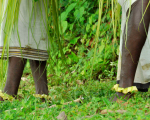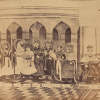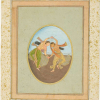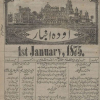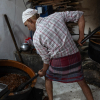Pakkanar Kali is a ritualistic art form of the Paraya community in South and Central Kerala. Performed by men from the community, there exists variations in the art form locally, as well as between South and Central Kerala.
The Pakkanar Kali season commences from the atham day of the Malayalam calendar month of Chingam—along with the preparations for Onam—and goes on till the ‘fifth Onam’ (the ‘first Onam’ falls on the uthradam day of the Malayalam calendar, and the fifth falls on purooruttathi). The season witnesses Pakkanar Kali groups visiting houses where they sing and dance in the courtyards. It is believed that the art form banishes bad luck and evil spirits from the houses they are performed in.
The songs sung alongside the performance, called Pakkanar Pattu, carry stories reflecting the legend and philosophy of Pakkanar, a holy man believed to be the progenitor of the Paraya caste. According to the popular folktale Parayi Petta Pathirukulam (Clan of Twelve Birthed by the Paraya Woman), Pakkanar was the second of the 12 children born to Vararuchi, a Brahmin, and Panchami, a Paraya woman. The legend goes that 11 of the 12 children were abandoned by the couple. The children were adopted and brought up by 11 different families belonging to various communities. It is believed that these children became the progenitors of various caste groups across the caste hierarchy, and that they lived in harmony performing their community jobs.
The image gallery captures the journey of a Pakkanar Kali group and illustrates the ritualistic nature of the art form.



